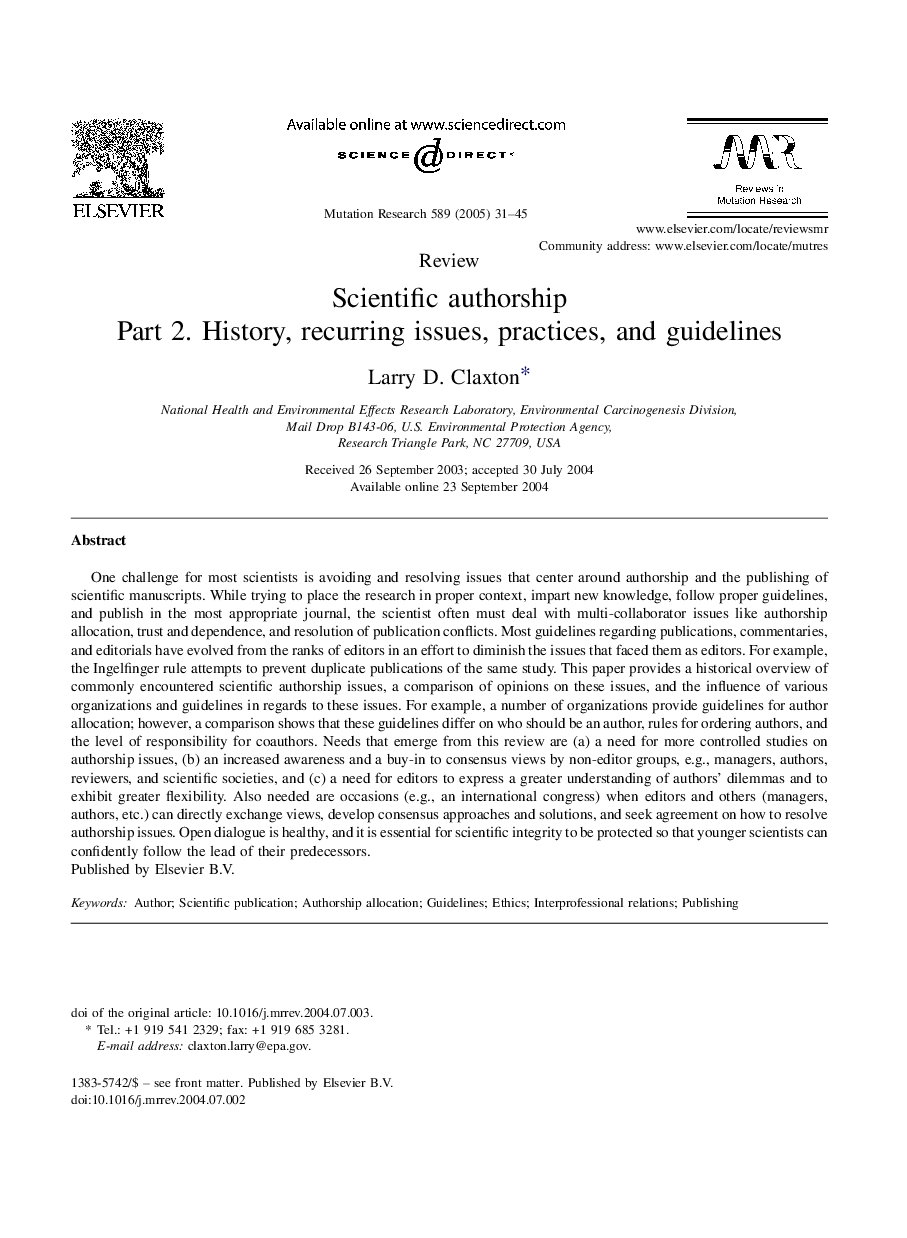| کد مقاله | کد نشریه | سال انتشار | مقاله انگلیسی | نسخه تمام متن |
|---|---|---|---|---|
| 10915296 | 1089892 | 2005 | 15 صفحه PDF | دانلود رایگان |
عنوان انگلیسی مقاله ISI
Scientific authorship
دانلود مقاله + سفارش ترجمه
دانلود مقاله ISI انگلیسی
رایگان برای ایرانیان
کلمات کلیدی
موضوعات مرتبط
علوم زیستی و بیوفناوری
بیوشیمی، ژنتیک و زیست شناسی مولکولی
تحقیقات سرطان
پیش نمایش صفحه اول مقاله

چکیده انگلیسی
One challenge for most scientists is avoiding and resolving issues that center around authorship and the publishing of scientific manuscripts. While trying to place the research in proper context, impart new knowledge, follow proper guidelines, and publish in the most appropriate journal, the scientist often must deal with multi-collaborator issues like authorship allocation, trust and dependence, and resolution of publication conflicts. Most guidelines regarding publications, commentaries, and editorials have evolved from the ranks of editors in an effort to diminish the issues that faced them as editors. For example, the Ingelfinger rule attempts to prevent duplicate publications of the same study. This paper provides a historical overview of commonly encountered scientific authorship issues, a comparison of opinions on these issues, and the influence of various organizations and guidelines in regards to these issues. For example, a number of organizations provide guidelines for author allocation; however, a comparison shows that these guidelines differ on who should be an author, rules for ordering authors, and the level of responsibility for coauthors. Needs that emerge from this review are (a) a need for more controlled studies on authorship issues, (b) an increased awareness and a buy-in to consensus views by non-editor groups, e.g., managers, authors, reviewers, and scientific societies, and (c) a need for editors to express a greater understanding of authors' dilemmas and to exhibit greater flexibility. Also needed are occasions (e.g., an international congress) when editors and others (managers, authors, etc.) can directly exchange views, develop consensus approaches and solutions, and seek agreement on how to resolve authorship issues. Open dialogue is healthy, and it is essential for scientific integrity to be protected so that younger scientists can confidently follow the lead of their predecessors.
ناشر
Database: Elsevier - ScienceDirect (ساینس دایرکت)
Journal: Mutation Research/Reviews in Mutation Research - Volume 589, Issue 1, January 2005, Pages 31-45
Journal: Mutation Research/Reviews in Mutation Research - Volume 589, Issue 1, January 2005, Pages 31-45
نویسندگان
Larry D. Claxton,